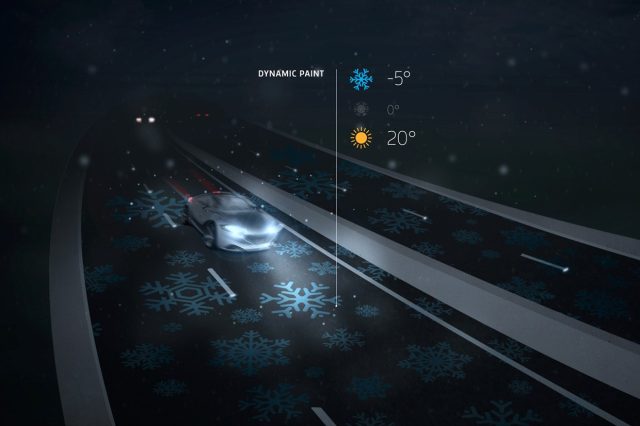
The glowing roads of Oss aren't working as planned and will be temporarily taken offline according to NOS (Google Translate), an outlet that's part of the Netherlands Public Broadcasting system.
The roads were only in the experimental phase, integrating a photo-luminescent powder into the paint to create the highway's glowing ability. The current problem is that the light-absorbing stripes on provincial road N329 do not give off a consistent level of light across the 500m (0.3 mile) stretch. NOS reports this is due to the system's inability to deal with moisture, a problem that was anticipated when the experiment started.
"There's no news yet on how the paint holds up against wear and tear," Wired UK reported when the stripes debuted. "The glow lasts up to eight hours once powered throughout the day, but a patchy inconsistent strip would not pave the way as effectively as energy-guzzling street lights. But it's of course in the interest of road operators and local government to employ these types of trials, considering the cost savings."
Heijmans, the construction company working on the project, claims the system was initially subjected to extensive lab tests. NOS reported the system will now be revisited after the paint is further developed in a laboratory. After that, the glow in the dark roads trial will continue, contrary to a German broadcast report that the system would be stopped. Heijmans is confident the next attempt will fare better.
During the first test period, the glowing roads garnered attention everywhere from the BBC to NPR, ABC News to The Atlantic. NOS noted that motorists enjoyed the effect so much, some would briefly drive without their standard lights on in order to fully take in the glowing scenery.

reader comments
37